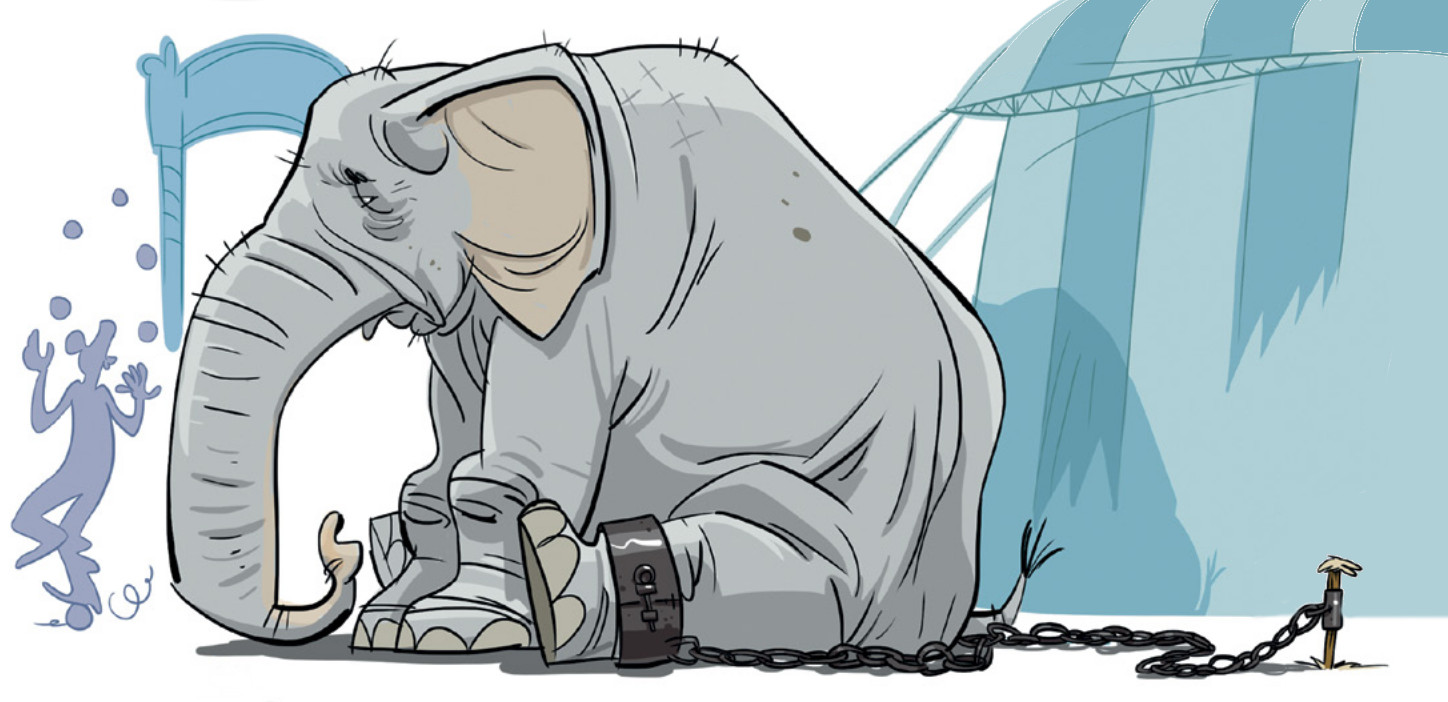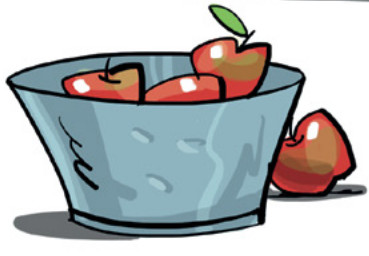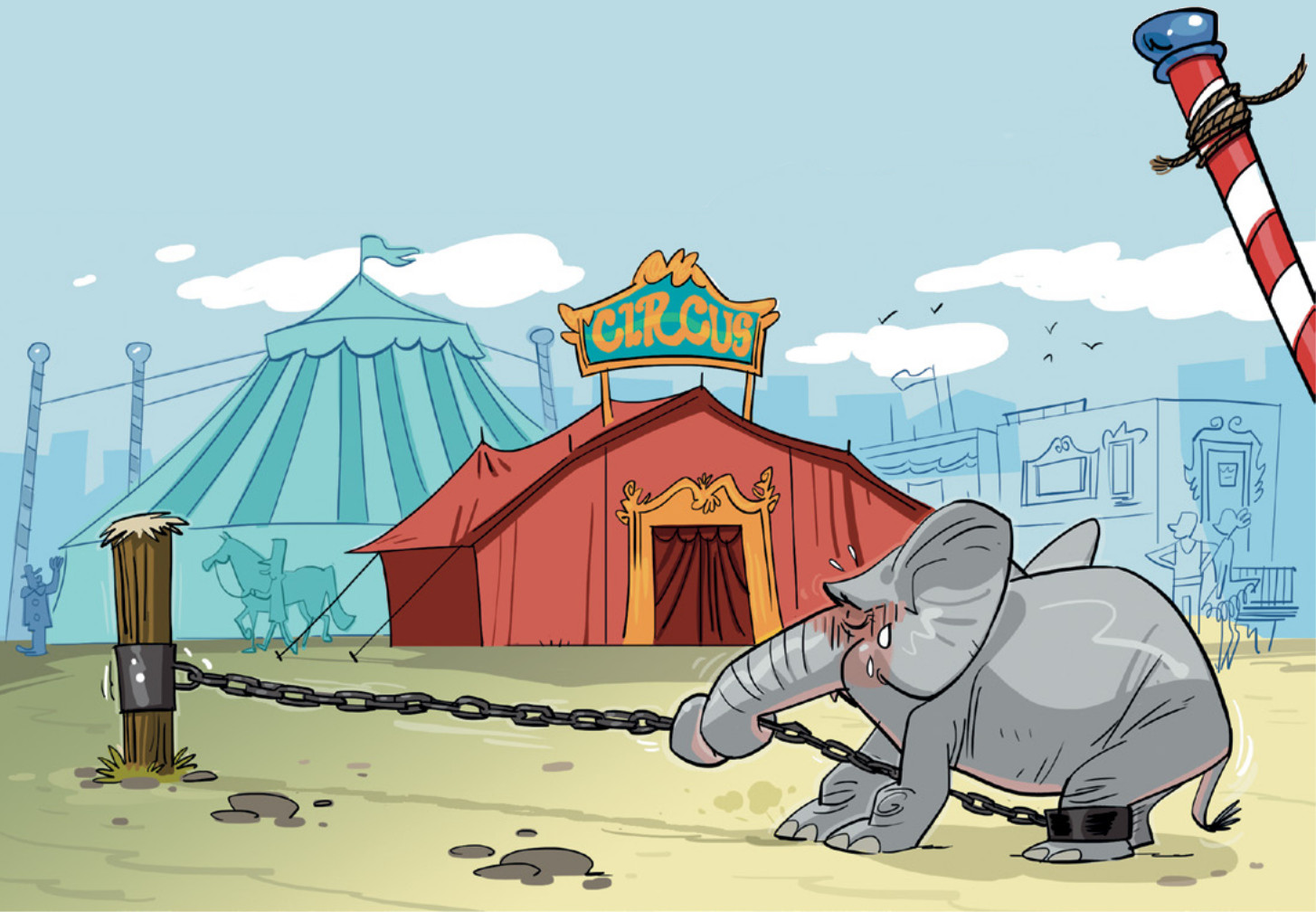
 When I was a boy I loved going to the circus. I liked all the animals, but the elephant was the best. It was enormous and strong, but after the show the elephant was held only by a single chain attached to one of its feet. The chain was tied to a small stake; just a tiny bit of wood buried in a few centimetres of earth. Although the chain was thick and strong, it was obvious that the elephant could easily pull the stake out and escape.
When I was a boy I loved going to the circus. I liked all the animals, but the elephant was the best. It was enormous and strong, but after the show the elephant was held only by a single chain attached to one of its feet. The chain was tied to a small stake; just a tiny bit of wood buried in a few centimetres of earth. Although the chain was thick and strong, it was obvious that the elephant could easily pull the stake out and escape.
What was keeping it there? Why didn't it run away?
When I was five or six, I asked my teachers and my parents about the mystery of the elephant. One of them explained that the elephant didn't escape because it was trained.
So, I asked the obvious question:
“If it's trained, why do they chain it up?“
I don't remember receiving a good answer.
A few years ago, I discovered that someone had found a good answer: the circus elephant didn't escape because it had been chained to a similar stake since it was very, very small.
I closed my eyes and imagined the baby elephant tied to the stake. It pushed and pulled to try and get free, but it couldn't. The little elephant became exhausted and went to sleep. It tried the same thing every day until one day it accepted its impotence and stopped trying.
The enormous, powerful elephant at the circus doesn't escape because it thinks it CAN'T escape. It remembers the impotence it felt when it was a baby, and it never questions it.
Life is like that. We all think there are many things we can't do, simply because once, a long time ago, when we were little, we tried and we couldn't do them.
We did the same as the elephant, we decided: “I CAN'T DO IT AND I NEVER WILL BE ABLE TO DO IT!“
Version of Indian parable, Dr. Jorge Bucay (adaptation)


Did you know...? Many circus performers carry an elephant hair in their pocket for good luck.

- Do you think the elephant and the other circus animals were happy? Why or why not?
- If the elephant could pull the stake out, why didn't it do it?
- Have you ever had to convince yourself that you could do something you thought you couldn't do?
